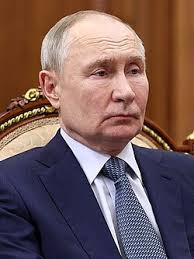
Introduction
Vladimir Putin, the current President of Russia, has been a pivotal figure in global politics for over two decades. His policies and leadership style have sparked significant debate and concern within international circles. As Russia continues to navigate complex relationships with the West, understanding Putin’s influence on geopolitics remains crucial for observers and policymakers alike.
Putin’s Leadership and Recent Developments
Since re-assuming the presidency in 2012, Putin has focused on consolidating power within Russia while extending the country’s influence abroad. Events such as Russia’s annexation of Crimea in 2014 and its ongoing military involvement in Ukraine underscore his aggressive foreign policy approach. The international community has responded with sanctions and political isolation, contributing to a growing divide between Russia and Western nations.
In recent months, developments in the Ukraine conflict have further complicated the geopolitical landscape. Analysts have noted that Putin’s willingness to escalate military operations in Ukraine signals a possible shift toward a more confrontational stance. Reports indicate an increase in military buildup along the Ukrainian border, sparking renewed concerns about the potential for expanded conflict.
The Impact of Sanctions and Internal Challenges
Western nations have imposed extensive sanctions on Russia, aimed at crippling its economy and harming Putin’s support domestically. These sanctions have had a profound impact, leading to inflation and economic downturn. However, Putin remains popular among certain segments of the Russian population, often attributing economic challenges to Western aggression.
Aside from economic difficulties, Putin faces internal challenges, including dissent and vocal opposition stemming from his handling of the pandemic and political repression. Public protests have erupted against political repression, and the recent poisoning of opposition figures has drawn international condemnation, shining a light on human rights issues within Russia.
Conclusion and Future Implications
The complexity of Vladimir Putin’s leadership and the geopolitical strategies he employs continue to present challenges for global stability. His actions not only impact Russia but also reshape the dynamics of international relations. As the conflict in Ukraine persists and tensions grow with the West, observers must remain vigilant about how these developments will affect not only European security but also global political alignments. Understanding Putin’s motivations and strategies will be essential for anticipating future actions on the world stage.



